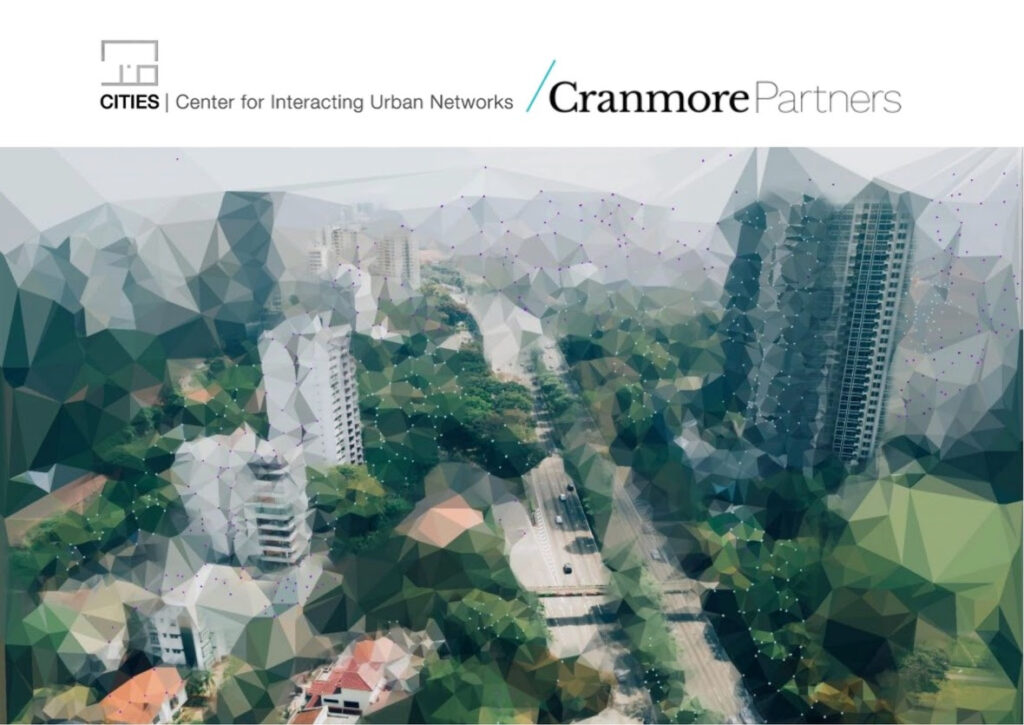
In September 2020, CITIES established a partnership with Cranmore Partners. Jointly the two institutions activated a program funded by Cranmore Partners that supports 4 exceptional NYUAD undergraduate students with a demonstrated interest in research and academia, by providing a highly competitive research opportunity in CITIES. This program aims to identify from the early stage and then foster academic talent, and to contribute to the development of research in the UAE. It is a unique opportunity for bright students to explore innovative research in the area of Urban Science, with a focus on the UAE and the region, spanning disciplines from Engineering, Computer Science, Sociology, History, and the Arts. Four research projects were sponsored. Progress was made on all projects (see below) during the last 12 months. One project was completed and the other three are still active.
Below are the 4 selected projects:
Artificial Intelligence to Assist Clinical Decision-makers in the Prescription of Antibiotics
Student: Phillip Wang
Professor: Farah Shamout
The excessive use of broad-spectrum antibiotics is a major global health problem since it poses a significant health risk to patients with multiple comorbidities like diabetes and heart disease. Using artificial intelligence (AI), we aim to leverage large-scale electronic health record data to provide guidance for the prescription of antibiotics to diabetic patients, in collaboration with Cleveland Clinic Abu Dhabi. The AI system can support decision-makers in optimizing treatment and resource allocation by processing data collected from patients in real-time. We already developed a baseline model and submitted two research abstracts that are currently under review, including one for the Annual Conference of the Faculty of Clinical Informatics (UK). This project has significant implications in improving patient care, and subsequently the overall quality of life in Abu Dhabi and the UAE.
Sustainable Coastal Development Through Blue Engineering
Student: Mariano Alberto Utrera
Professor: John Burt
Human-built infrastructure such as seawalls, jetties, and breakwaters now make up more than half the length of shorelines of the Arabian Gulf. While primarily built for erosion control, such structures are rapidly colonized by marine organisms and become highly ecologically important – but largely underappreciated – artificial reef habitats. As many of these structures are formed using concrete set in molds, there is an opportunity to use ‘ecological engineering’ approaches to design molds that maximize marine diversity and abundance with no impact to cost or efficacy. The team is performing a pilot production and field testing of scalable 3D mold designs that could be utilized by the regional and international coastal construction community. COVID-19 has slowed down the progress of this project and new arrangements are currently being discussed to overcome the challenges.
Production of Environmentally-Friendly Alternative to Conventional Cement from Salt Water
Student: Cornelius Otchere
Professor: Kemal Celik
Cement is an important constituent of concrete, which is the most widely used construction material globally. The production of cement poses serious concerns to the environment due to the high carbon dioxide (CO2) emissions. Useful minerals from by-products of several industries could provide sustainable alternatives to conventional cement. One such solution is magnesium hydroxide (brucite), which can be recovered from the concentrated salt water (waste brine) of the desalination process used in freshwater extraction from seawater. The current practice is discharging waste brine back into the sea, harming marine life. This project aims to implement a cost-effective and energy-efficient method to recover magnesium hydroxide from the waste brine. Brucite recovered from waste brine can be infused with CO2 to create carbonation products of good binding action for construction applications. The addition of naturally occurring minerals such as CaCO3 could further improve the carbonation rate and the formation of stronger carbonation products. The project’s success has a positive implication for the UAE, which has access to a significant amount of waste brine as a result of more than 70 desalination plants in operation. Experiments performed in the AMBER lab confirmed that brucite could be successfully synthesized from reject brine using a simple precipitation procedure using CaO as a low-cost precipitating agent. Brucite obtained from this procedure was used to fabricate compacted pellets with optimized water to binder (w/b) ratio. Carbonation of the compacted pellets under concentrated CO2 conditions results in significant strength gain (~30 MPa) and CO2 sequestration. Naturally occurring minerals such as CaCO3 and MgCO3 were used as supplementary additives to brucite up to 30 wt% without affecting the optimized w/b ratio of the compacted pellets. Mechanical characterization of the compacted pellets confirmed that the addition of CaCO3 up to 30 wt% in brucite does not affect the compressive strength of the brucite pellets. However, the addition of MgCO3 up to 30 wt% resulted in a decrease in the compressive strength. The studies confirmed that naturally occurring CaCO3 could be added as supplementary material into brucite.
Who Reports and Whom Gets Reported for Pandemic-Time Transgressions?
Student: Lucas Davidenco
Professor: Kinga Reka Makovi
During the COVID-19 pandemic, urban dwellers around the world have learned, negotiated, adhered to, and policed their communities on a new set of normative mandates meant to sustain community health: wearing masks, maintaining social distance, and abstaining from gatherings, to mention a few. The project investigated (1) what factors drive compliance with these norms and (2) what factors determine reporting transgressions to the authorities, in both Abu Dhabi and Dubai. The project provided insights on the measure of the relative importance of the following characteristics (1) the ethnic and occupational composition of neighborhoods, (2) the perceived threat that COVID-19 poses in one’s neighborhood, (3) socio-demographic background, and (4) one’s trust in institutions to enforce regulations. This project finished in August 2021. Lucas Davidenco graduated in May 2021 and is now at the New York University School of Law, which is a further testament to the success of this initiative.